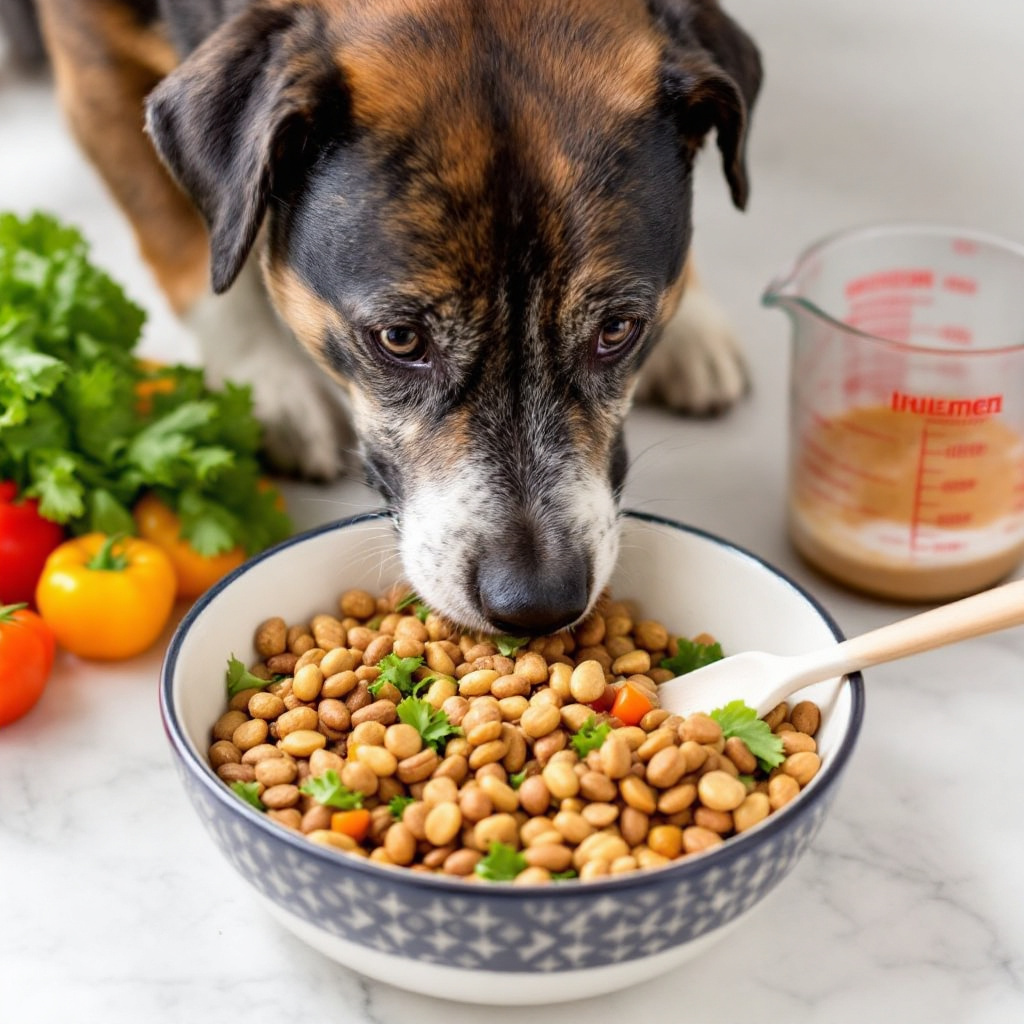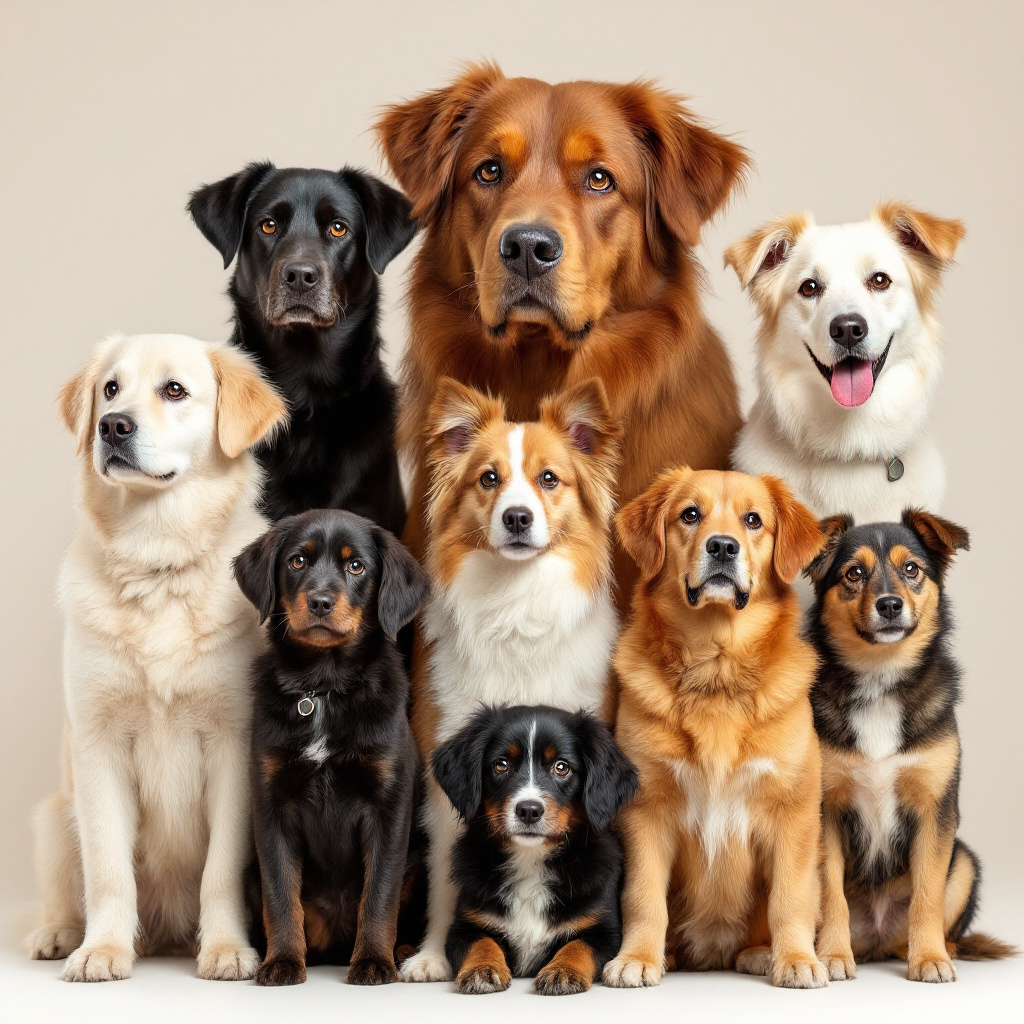Small hunting dogs: Care and retirement provision for small hunters
Small hunting dogs: a proud tradition
Small hunting dogs have a long and fascinating history. From the prehistoric forests of Europe to modern hunting grounds, they have always played an important role. Not only are these industrious little four-legged friends amazingly efficient, they are also incredibly friendly. But what makes them so special?
Which breeds belong to the small hunting dogs?
When you talk about small hunting dogs, many people immediately think of the dachshund or the fox terrier. But there are many small breeds that have developed into capable hunters. Here is an overview:
- Dachshund: Especially known for their agility in narrow burrows.
- Beagle: A master at tracking and following game.
- Small Münsterländer: An all-rounder that shines both in the field and in the forest.
- Fox Terrier: Undaunted and fearless, a true fighter in a small format.
Why small hunting dogs are so effective
These little hunters have special characteristics that make them stand out:
- Agility: Their small size allows them to explore even the tightest corners.
- Tireless hunting instinct: They are not easily discouraged and remain focussed.
- Adaptability: Whether in the city or in the countryside, they adapt to their conditions.
- Close bond with people: Their social nature makes them loyal companions.
Care of small hunting dogs
Keeping and caring for a hunting dog requires dedication and knowledge. But don't worry, with a few tips your faithful companion will be well looked after.
Health care and nutrition
A healthy diet is the be-all and end-all. Small hunting dogs tend to consume more energy due to their activity. Here is some advice:
- High quality lining: Contains all the important nutrients and supports your health.
- Regular visits to the vet: Early detection of diseases and regular immunisations are essential.
- Weight control: Being overweight can restrict their mobility and cause health problems.
Care of the coat and paws
A hunting dog's coat requires regular grooming. Matting and dirt can affect their comfort.
- Regular brushing: At least once a week to remove knots and dirt.
- Paw care: Check regularly for cracks or injuries, especially after hunting.
- Baths: Not too often, but always after heavy contact with dirt. Use mild shampoos suitable for dogs.
Ageing of small hunting dogs
The ageing of a hunting dog brings with it special challenges. Their needs change as they get older, and as a responsible owner you should be prepared for this.
Health changes in old age
Older dogs have a greater susceptibility to certain health problems. Here are some common concerns:
- Arthritis: Common problem in older dogs that can affect their mobility.
- Dental problems: Regular dental cleanings and check-ups are important.
- Hearing and vision loss: Can influence behaviour; adjustments in everyday life are necessary.
Adapted care in old age
Your little hunting dog has served you faithfully for many years. Now it's time to give him the best care in his old age.
- Change of diet: Age-appropriate food supports the dog's new needs.
- Gentle movement: They also need exercise in old age, but to an appropriate extent.
- Cosy resting places: Soft and well-padded lying surfaces prevent pressure points.
- Mental stimulation: New tricks and tasks keep the mind fit.
The social aspect: bonding and well-being
A hunting dog is not only a working animal, but also a beloved family member. The emotional bond and their general well-being should never be neglected.
Playing and training
Regardless of age, play and training should always be an integral part of your dog's life. Games promote bonding and at the same time keep your dog physically and mentally fit.
- Intelligence games: Promote thinking skills and offer challenges.
- Obedience training: Strengthens operation and ensures safety.
- Hunting simulations: Keeps their natural instinct awake.
Involving the family
Nothing strengthens the bond more than involving the whole family. Here are a few tips:
- Joint walks: Promote social interaction and strengthen trust.
- Family projects: Carry out training and care together.
- Playing time: Every age group can interact and play with the dog.
Conclusion: A faithful companion for every situation
Small hunting dogs are not only excellent hunters, but also wonderful family members. Caring for them and being aware of their age will give you many unforgettable years together. With the right attention and affection, your little hunting heroes will stay healthy, happy and fit - and you will always enjoy their company.
FAQs
How old do small hunting dogs get?
The lifespan of small hunting dogs varies depending on the breed. In general, they can live between 12 and 16 years. Breeds such as the Dachshund and the Beagle often reach an advanced age, especially if they are well cared for and receive regular veterinary care.
How much does a trained small hunting dog cost?
The cost of a trained small hunting dog can vary greatly, but as a rough guide you can expect to pay around 3,500 to 5,000 euros. This sum covers purchase costs, training, vet fees, examination fees and necessary accessories. The exact costs depend heavily on the specific breed and the level of training.
Are these small dogs actually good for hunting?
Absolutely! Small hunting dogs are particularly effective in narrow and densely overgrown areas. Breeds such as the Dachshund and Fox Terrier are predestined for hunting burrows, while the Beagle is excellent at chasing hares and rabbits. Their size gives them particular agility and endurance.
Can any dog be trained as a hunting dog?
Not every dog is suitable as a hunting dog. The best hunting dogs usually come from certain breeds that have been bred specifically for this task. These dogs have a strong natural hunting instinct, stamina and the ability to work efficiently in a variety of conditions. However, targeted training and consideration of the individual character traits of each dog are essential.
What special care does an old small hunting dog need?
Older small hunting dogs need special attention. This includes an age-appropriate diet, regular health checks and gentle exercise. It is important to watch for changes in their behaviour or health, as older dogs are often more prone to arthritis, dental problems and sensory decline. A cosy resting place, mental stimulation and lots of love are also crucial to ensure their wellbeing as they age.
Author
-

David is a passionate aquarist with more than 20 years of experience in setting up and maintaining freshwater and saltwater aquariums. He specialises in the biodiversity of aquatic ecosystems, aquascaping and the species-appropriate keeping of aquarium fish. His articles on haustierewissen.de are a treasure trove for aquarium enthusiasts looking for sound advice and creative ideas for their underwater worlds.
View all posts




